Brisbane’s Jason Akermanis, Simon Black and Michael Voss after the third leg of their flag hat-trick in 2003. Photo: AFL MEDIA
One swallow doesn’t make a summer.
Borrowing that logic, we could reason that hosting one grand final won’t turn Queensland into what AFL followers refer to as “football state”.
But Chris Scott is one of a growing number of prominent footy figures who don’t necessarily agree.
“We could look back and say it’s the turning point of AFL footy in Queensland,” he said last week. “We might look back on this period and say we thought we were a national competition before that, now we’re really a national competition.”
Scott played 215 games with Brisbane – first Bears, then Lions – over 14 seasons.
The dual premiership enforcer openly admitted his bias during a recent press conference, and was always going to give a positive answer when asked about the effect a Gabba grand final could have on Queensland.
But he should know better (and perhaps does but isn’t letting on).
The major turning point, if there was going to be one, would have happened about 15 years ago. Actually, it would have been more of a three-point turn – and Scott was at the heart of it.
Leigh Matthews’ Lions were the kings of the AFL jungle, dethroning Essendon and dominating three straight finals campaigns to become the first team since the 1950s to claim a hat-trick of premierships.
They played in front of heaving crowds at the Gabba and there was a sense that Australian Rules football was finally mounting some sort of challenge in Queensland to the pre-eminent force – rugby league.
Within a decade, “Lethal” was long gone, Brisbane was battling, the crowds had disappeared, and the AFL was sinking tens of millions into a new Gold Coast venture that is still yet to reap major dividends as we sit here today.
Queensland was the AFL’s problem zone as a long list of talented players left for greener pastures, leaving the Suns and Lions to wallow near the foot of the ladder.
PLEASE HELP US CONTINUE TO THRIVE BY BECOMING AN OFFICIAL FOOTYOLOGY PATRON. JUST CLICK THIS LINK.
The AFL salary cap and draft systems set up the competition to be cyclical, and Brisbane has the buzz back now as it mounts a genuine premiership push under Chris Fagan, having ended a nine-year finals drought last season.
There is even a sense of excitement around perennial battler Gold Coast as it ushers through a group of talented high-end draft picks that have actually committed their medium-term futures to the club.
We often hear about unprecedented numbers of junior players in Queensland and the Suns’ new membership record.
But the jury is still out on Gold Coast’s long-term viability and Queensland – no matter how bad the current Broncos implosion gets or how long the Titans and Cowboys continue to plod along – is still a rugby league state.
Consider the flipside for a moment.
Melbourne has hosted numerous State-Of-Origin rugby league bouts – which are arguably bigger than the NRL grand final, or at least on the same level – and Perth held one at Optus Stadium.
So where’s the wave of momentum swinging those AFL-mad cities towards rugby league? It’s not there, because one-off events might cause a splash, but they very rarely empty the pool.
Don’t get me wrong. Queensland hosting the grand final would be good for the growth of Australian Rules football in the state, assuming whatever momentum it generates is seized upon by the AFL.
In fact, the Sunshine State actually deserves hosting rights after keeping the 2020 season afloat and ensuring the competition’s survival by providing a temporary home for the clubs that needed it.
Being granted hosting rights for the finals series, including the grand final, would be a fitting reward.
But the idea that sending the season decider to the Gabba would win over rugby league-mad Queenslanders for the AFL is fanciful, to say the least.

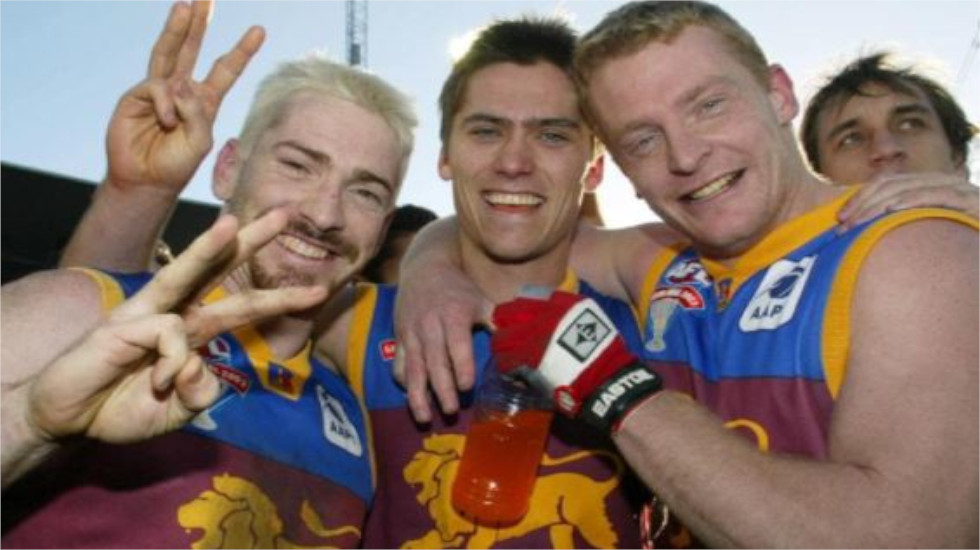

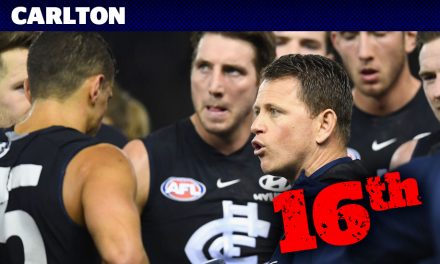
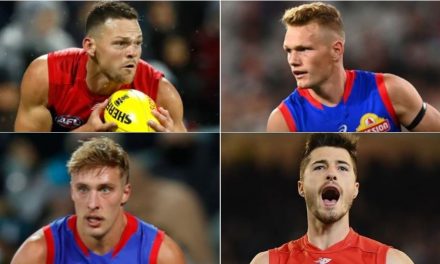
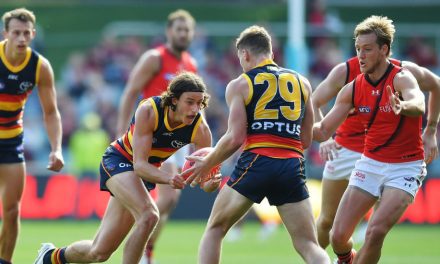
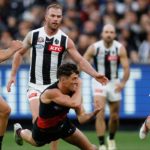
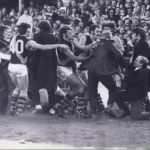




I disagree with this argument. Queensland has more Aussie Rules participants than either of the traditional AFL states of WA & SA. This is the flow-on from the Lions’ premierships 20 years ago & the work/$ put in by AFL. Having the Grand Final in Brisbane will increase interest & participation. This can’t be compared to SOO in Melbourne or Perth. Neither city has a history of rugby league being played with only a few clubs – so there has been no leap in interest (despite Storm in Melb). In comparison to Brisbane, which has had a long history of Aussie Rules going back to 19th century. There are many clubs, is played in schools & has strong competitions all over Qld. The Gold Coast has been even stronger & Suns crowds have always bene equal to Titans.
There is talk that as part of the agreement to have the Grand Final, Qld will promote Aussie Rules even more. This is an opportunity to be siezed!